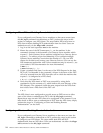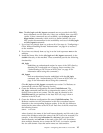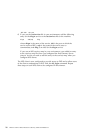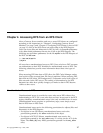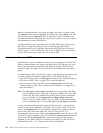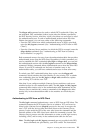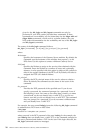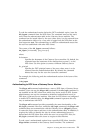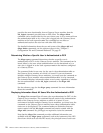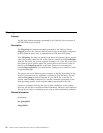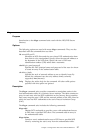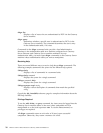provides the same functionality from a Gateway Server machine that the
dfs_logout command provides from an NFS client. The dfsgw delete
command can be issued either by the user whose entry is to be removed from
the authentication table or by a user who is logged into the Gateway Server
machine as the local superuser root. The command has no effect on
authenticated sessions the user has with other NFS clients.
For detailed information about the use and syntax of the dfsgw add and
dfsgw delete commands, see the reference pages in the “Chapter 5.
Configuration File and Command Reference” on page 25.
Determining Whether a Specific User Is Authenticated to DCE
The dfsgw query command determines whether a specific user is
authenticated to DCE via the Gateway Server machine. The command can be
issued either by the user whose authentication is to be determined or by a
user who is logged in as the local superuser root on the machine configured
as a Gateway Server.
The command looks for an entry for the user in the authentication table on
the Gateway Server machine on which it is issued. If your environment
includes multiple Gateway Server machines, you must issue the command on
the Gateway Server machine whose authentication table is to be examined.
The command displays information about a user’s entry regardless of whether
the user authenticated via the dfs_login command or the dfsgw add
command.
See the reference page for the dfsgw query command for more information
about the command.
Displaying Information About All Users Who Are Authenticated to DCE
The dfsgw list command lists all users who are authenticated to DCE via the
Gateway Server machine. The command lists all entries in the authentication
table on the Gateway Server machine on which it is issued. If your
environment includes multiple Gateway Server machines, you must issue the
command on the Gateway Server machine from whose authentication table
entries are to be displayed. The command makes no distinction between
entries created with the dfs_login command and entries created with the
dfsgw add command. No privileges are required to issue the command.
Note that the dfsgw list command provides additional information not
available with the dfsgw query command, such as the hostname of the NFS
client from which each user has DFS access, the principal name of each user
22 DFS for Solaris: NFS/DFS Secure Gateway Guide and Reference



